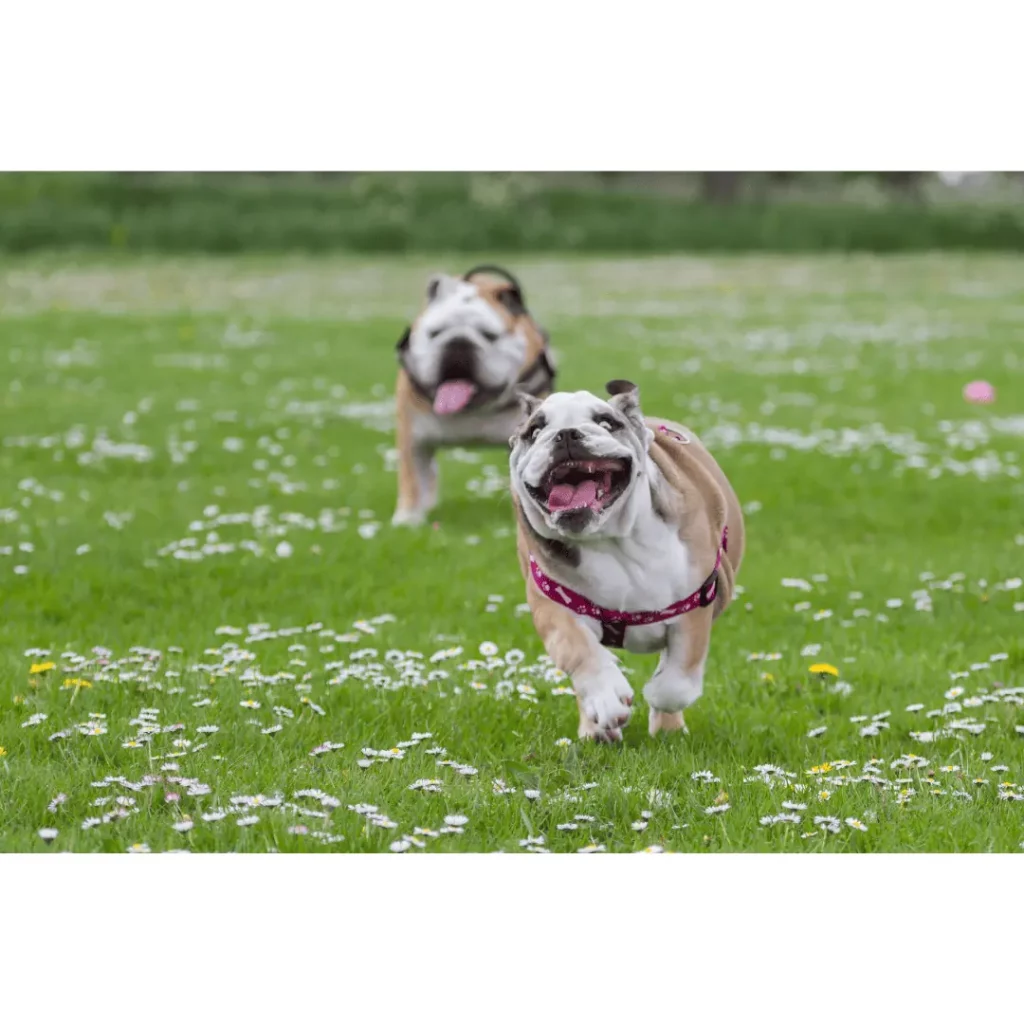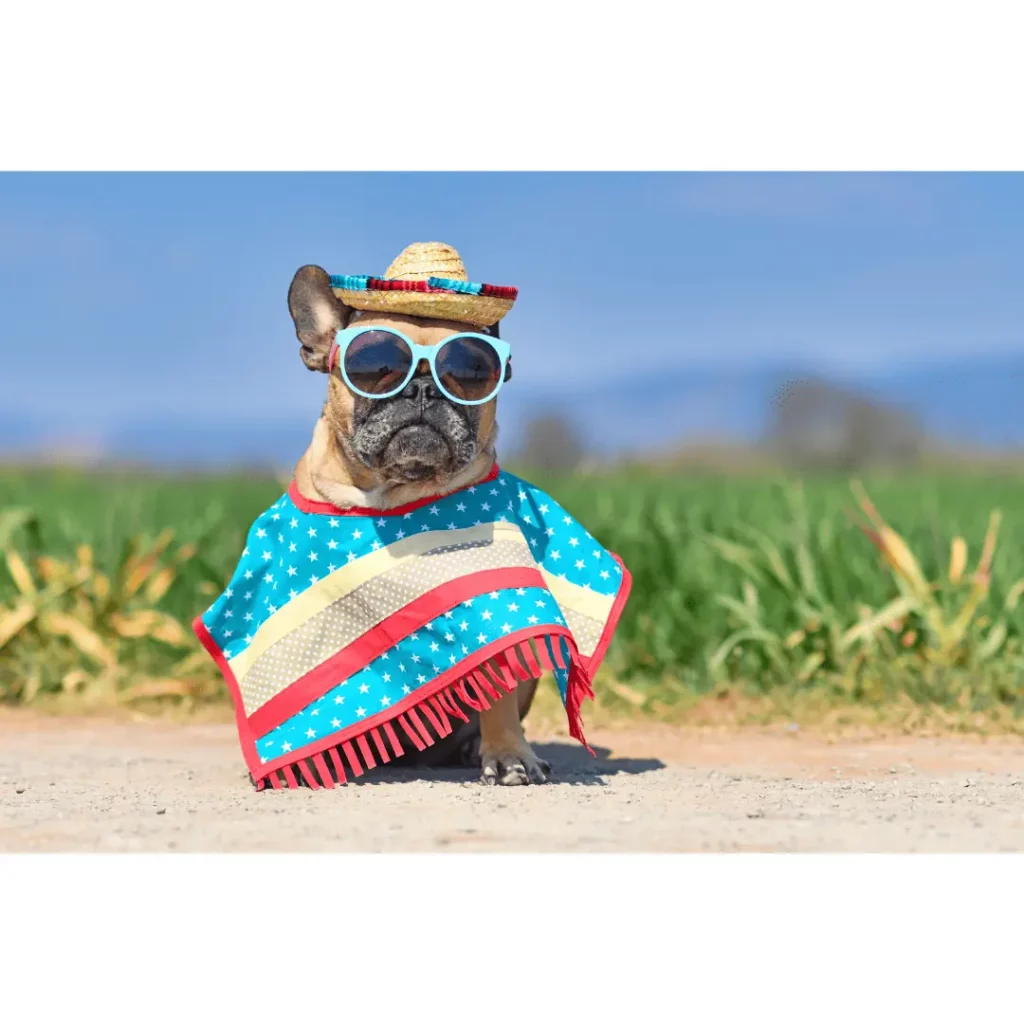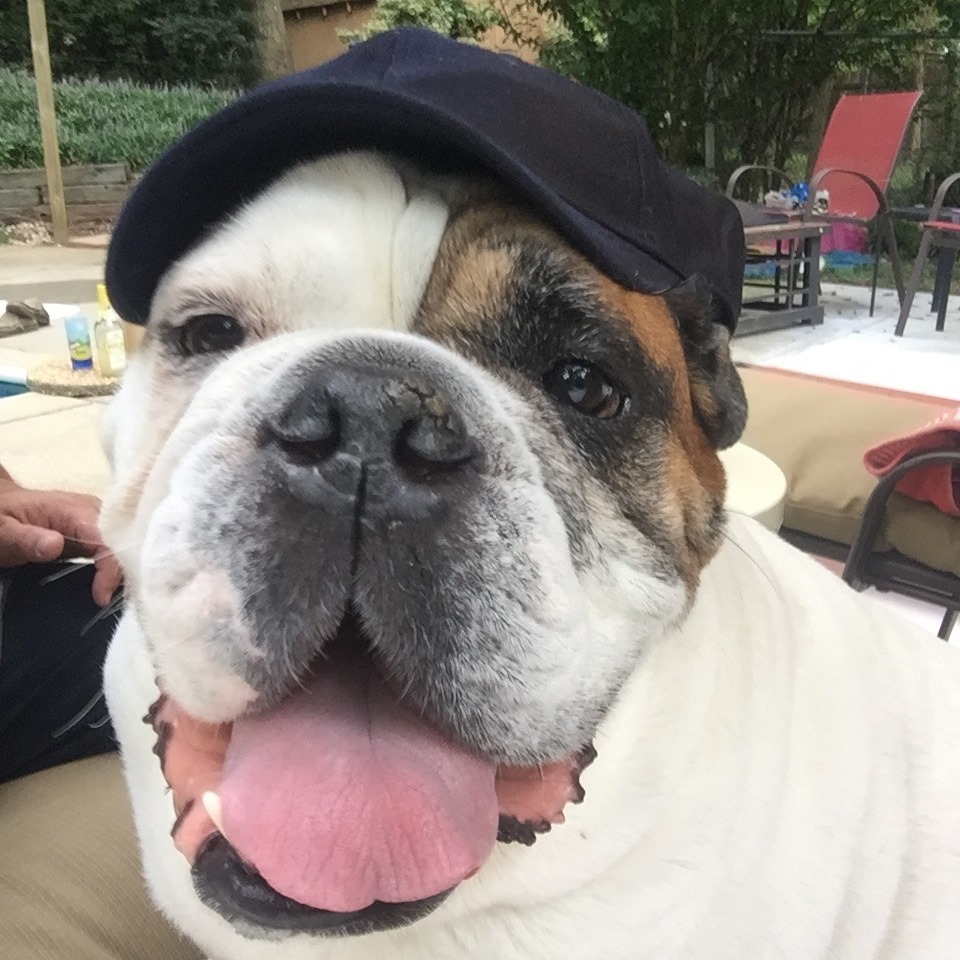Bulldogs suffer from skin allergies. This is no big secret! These guys don’t get a break! These allergies can cause discomfort, itching, and rashes, and can sometimes lead to more serious health problems. They are caused in so many different ways.
In this article, we’ll explore the causes, symptoms, and treatment options for bulldog skin allergies. We will also answer some of the biggest questions people ask about Bulldog skin allergies.
What are Bulldog Skin Allergies?
Bulldog skin allergies, also known as atopic dermatitis, are a common condition that affects dogs of all breeds, including bulldogs.
What causes dermatitis in English bulldogs?
Dermatitis in English bulldogs is caused by several factors, including skin allergies, contact with irritants, and trapped sweat and moisture.
They are caused by an overreaction of the immune system to certain environmental allergens, such as dust mites, mold, or pollen. This overreaction causes inflammation and itching, which can lead to skin irritation and infection.
Atopic dermatitis, also known as eczema, is a skin allergy that English bulldogs are susceptible to. The cause of skin allergies is often dust mites or mold. When the skin is hypersensitive to these, it can result in this condition.
Contact dermatitis occurs when the pet is exposed to an irritant such as chemicals, dirt, pollens, or house plants like Spiderwort, eucalyptus, begonia, and cyclamen.
The short snout of English bulldogs can cause sweat and moisture to become trapped in the skin folds around the face, lips, and tail, leading to dermatitis.
How can you prevent dermatitis in English bulldogs?
It requires keeping their skin clean and dry. For best results, clean and dry your bulldog daily. This doesn’t mean a bath. You can use baby wipes and tissues.
What are English bulldogs most allergic to?
English bulldogs can be allergic to a variety of substances including pollen, dust mites, mold, flea bites, certain food ingredients, cleaning products, topical medications, and grass. Here’s a list of the most common things that cause bulldog allergies:
- Pollen
- Dust mites
- Mold spores
- Flea bites
- Certain food ingredients (e.g. beef, dairy, wheat)
- Cleaning products
- Topical medications
- Grass and other outdoor allergens

What can I feed my bulldog with skin allergies?
If your bulldog has skin allergies, it’s best to feed them a hypoallergenic diet that is free of the ingredients they are allergic to. Your veterinarian can recommend a specific brand or help you create a homemade diet.
An example of a hypoallergenic diet, avoid grain in dog food. The best food is fish as the main protein source or add a source of omega-3 fatty acids, which are important for bulldogs’ health.
Here are a few hypoallergenic dog food brands for bulldogs:
- Wellness CORE RawRev Grain-Free Original Recipe with Freeze-Dried Turkey
- American Journey Grain-Free Chicken Sweet Potato Dry Food
- Taste of the Wild High Prairie Grain-Free Adult Dry Food
- NomNom Fresh Food Delivery Earthborn Holistic Venture Rabbit Meal Pumpkin LID Grain-Free Recipe
What foods to avoid for dogs with skin allergies?
Food allergies make up about 10% of the allergies found in bulldogs, so it is important to pay attention to what your dog eats. Bulldogs should never eat “people food” or table scraps. You never know what they might be allergic to.
The most common food allergens for English Bulldogs are beef, chicken, lamb, and wheat. Allergies to soybean, milk, eggs, corn, walnuts, and peanuts have also been reported.
It is important to note that bulldogs that have developed an allergy to one type of food may develop allergies to additional foods in the future. Therefore, it is recommended to avoid the mentioned food allergens if your dog has a skin allergy.
What are the signs of Bulldog Skin Allergies?
The symptoms of bulldog skin allergies can range from mild to severe. Check their body to find areas of irritation. Typical areas include the stomach, paws, butts, ears, face, and legs. Things to look for include:
- Itching and scratching
- Redness and swelling
- Rashes and hives
- Bulldog skin problems hair loss
- Dry and flaky skin
- Ear infections
- Hot spots
- Secondary bacterial infections
What are the Causes of Bulldog Skin Allergies?
There are many factors that can contribute to English bulldog allergy symptoms:
Exposure to allergens: Dogs can be exposed to allergens through the air, food, or contact with objects.
Genetics: Some bulldogs may be predisposed to skin allergies due to genetics.
Stress: Stress can weaken the immune system, making dogs more susceptible to skin allergies.

MUST READ: Top 10 Health Issues Every New English Bulldog Owner Should Know
How do you treat a bulldog skin problem?
English bulldog allergies treatment depends on the severity of the symptoms and the underlying cause of the allergies. In some cases, a simple change in diet or a switch to hypoallergenic dog food can help to reduce symptoms. In other cases, more aggressive treatment may be necessary, such as:
1. Antihistamines: These can help to relieve itching and swelling. Some commonly used antihistamines Benadryl, Claritin, Zyrtec, Reactine, Vistaril.
2. Corticosteroids: Prednisone is a powerful anti-inflammatory drug that can reduce itching and inflammation. This should only be done under the advice of your vet.
3. Fatty acid supplements: Omega-3 and Omega-6 fatty acids together can help improve the overall health of the skin and reduce symptoms.
4. Allergen immunotherapy: This involves exposing the dog to small amounts of the allergen in question in order to build up immunity over time.
In severe cases, a combination of these treatments may be necessary. Your veterinarian will be able to recommend the best course of treatment for your bulldog based on their individual needs.
English bulldog skin allergies home remedies
Chamomile or green tea soaks: These soaks can soothe the skin due to the anti-inflammatory and antifungal benefits of chamomile compounds.
Baking Soda: Mix one part baking soda with one part water. This will create a paste. Apply to the affected area.
Oatmeal Bath: Add six inches of water to the bathtub. Add three or four cups of colloidal oatmeal to the water. Use your hands to scrub the oatmeal water mix all over the body. Let it sit on the body for about 15 minutes before rinsing it off.
Coconut Oil: Helps with itchy skin from eczema, contact dermatitis. Apply it to the affected areas.
Aloe Vera: People use it on their skin for many reasons including sunburn. Warning only put it on the affected spot they cannot lick. There is an ingredient in Aloe Vera that can make your dog sick.
It is important to note that frequent bathing should be done with caution as it can increase skin irritation. It is recommended to let the bulldog sit in its crate for an hour after a bath to allow it to get rid of most of the dirt on its own.
How can I prevent my English Bulldog from getting skin allergies?
Preventing skin allergies in your bulldogs involves reducing their exposure to allergens and maintaining good skin health. This includes regularly grooming and bathing your bulldog, keeping their living area clean and allergen-free, feeding them a balanced diet, and avoiding the use of harsh chemicals.
You can’t prevent it, you can only try to contain it the best you can. While it’s not always possible to prevent bulldog skin allergies, there are some steps you can take to reduce the risk:
- Feed your bulldog a healthy, balanced diet
- Keep your home clean and free of allergens
- Bathe your bulldog regularly to remove allergens from the coat
- Reduce stress in your bulldog’s life as much as possible
MUST READ: 4 Reasons English Bulldogs of Breathing Issues: Causes, Treatments, and Prevention Methods

Final Thoughts:
Bulldog skin allergies treatment is a never-ending battle in most cases. It’s uncomfortable and distressing for your dog, but with the right treatment and care, they can be managed.
If you suspect your bulldog has a skin allergy, it’s important to seek veterinary help as soon as possible. By understanding the causes, symptoms, and treatment options for bulldog skin allergies, you can help your pet.

